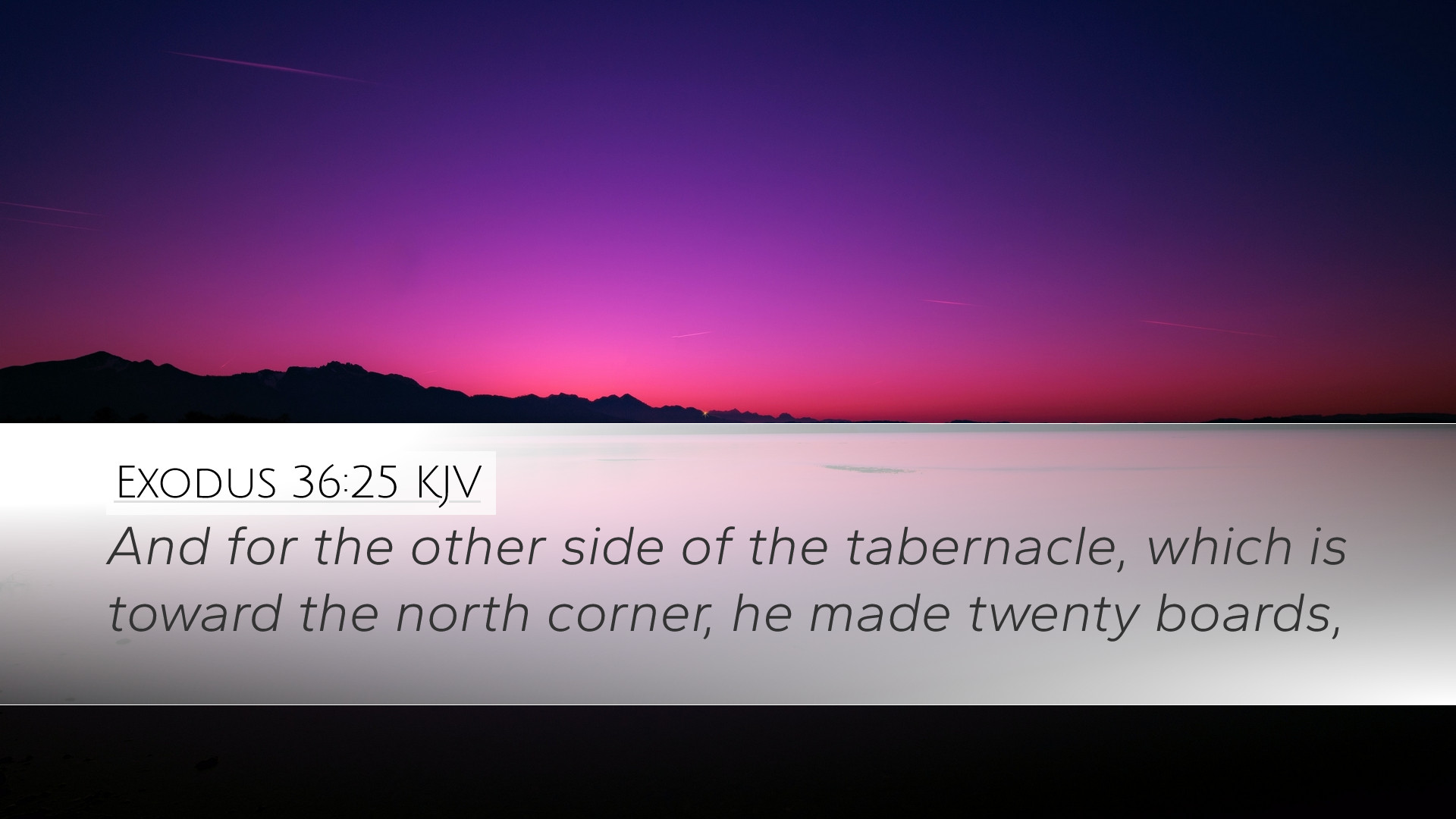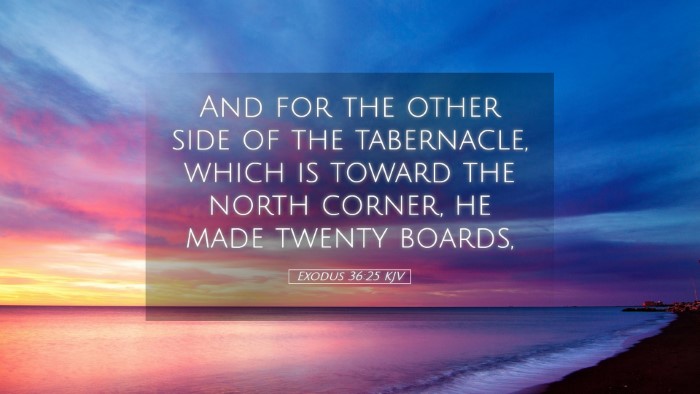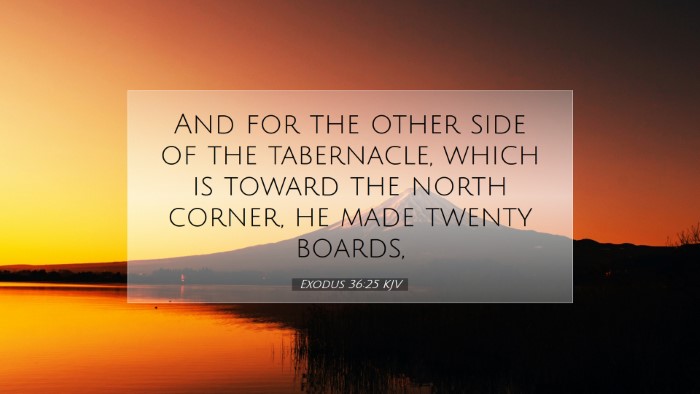Commentary on Exodus 36:25
Exodus 36:25 (KJV): "And for the other side of the tabernacle, which is toward the north corner, he made six boards."
Introduction
Exodus 36:25 is a significant verse in the description of the construction of the Tabernacle, showcasing the meticulous nature of God's instructions to His people. This commentary will explore various insights from public domain sources, focusing on the implications of the construction of the Tabernacle for contemporary readers, including pastors, students, theologians, and Bible scholars.
Contextual Background
The Book of Exodus narrates the journey of the Israelites from slavery in Egypt to the Promised Land, introducing the covenant relationship between God and His people. The Tabernacle represents God's desire to dwell among His people, serving as a mobile sanctuary during their wilderness wanderings.
Analysis of the Verse
1. The North Side of the Tabernacle
According to Matthew Henry, the mention of the north side indicates a balance in the construction. Each side of the Tabernacle was meant to present a uniform appearance, symbolizing the equality and harmony that God desires among His people. The six boards on this side represent completeness and stability, mirroring the stability in God's covenant with Israel.
2. Symbolism of the Boards
Albert Barnes notes that the use of boards in the Tabernacle's construction signifies the strength of God's presence. The boards, often referenced as representations of the leaders and elders of Israel, highlight the role of leadership and community in upholding God’s standards. The six boards on the north side correspond with spiritual stability and strength, emphasizing that God structures His house on firm foundations.
3. Meticulous Craftsmanship
Adam Clarke emphasizes the intricate specifics concerning the construction of the Tabernacle, illustrating God's attention to detail. Each board was crafted with precision, symbolizing the unique craftsmanship of God in creating His people. This meticulous nature serves as a reminder to current church leaders and believers of the importance of careful planning and execution in ministry.
Theological Implications
1. God’s Desire for Presence
The construction of the Tabernacle reveals God's longing to dwell with humanity. Each component, including the north side's boards, reflects God's commitment to His covenant people. As Matthew Henry reflects, God's presence is not to be taken lightly; it carries the weight of holiness and reverence that the church today must uphold.
2. Community in Construction
The Tabernacle was not built by a single individual but by the collective effort of the Israelites. This reinforces the importance of community in fulfilling God's mission. Albert Barnes remarks on the community aspect of worship and building God's house. Every member has a role, much like the boards in the Tabernacle come together to form a singular entity.
3. The Nature of Divine Order
God’s order in creating the Tabernacle, including the arrangement of the six boards, implies how His people are to live in structured harmony. Adam Clarke discusses the principle that divine order leads to function. In contemporary ministry, churches should aspire to reflect this order in their organizational structures and communal life.
Practical Applications
1. Importance of Worship Spaces
The Tabernacle serves as a prototype for sacred spaces. Modern churches can learn from the intentionality behind the design and function of worship areas. Matthew Henry reminds us that worship spaces should facilitate the gathering of believers, conducive to the presence of God.
2. Emphasis on Teamwork
In ministry, no one person can fulfill the call alone. The collaborative effort in constructing the Tabernacle highlights the need for teamwork in church leadership. Albert Barnes points out that recognizing diverse gifts leads to a stronger body of Christ. Churches today must continue to empower and utilize the varied gifts within their congregations.
3. Attention to Detail in Ministry
The care given to the Tabernacle’s design underscores the importance of excellence in ministry. Adam Clarke argues that details matter in service, worship, and community engagement, as they reflect the character of God. Leaders should strive for quality in their programs and ministries as a testament to their devotion.
Conclusion
Exodus 36:25 illustrates profound truths about God's presence, community, and divine order through the construction of the Tabernacle. As readers reflect on this verse and its implications, they are invited to consider their roles within the Body of Christ and the structures that support worship and communal living.
This commentary draws on the insights of established scholars to provide rich understanding and practical applications for contemporary believers.


